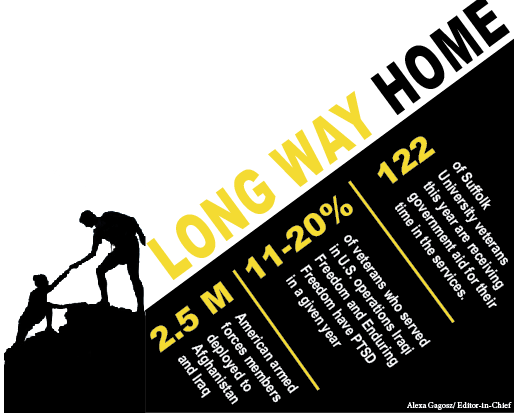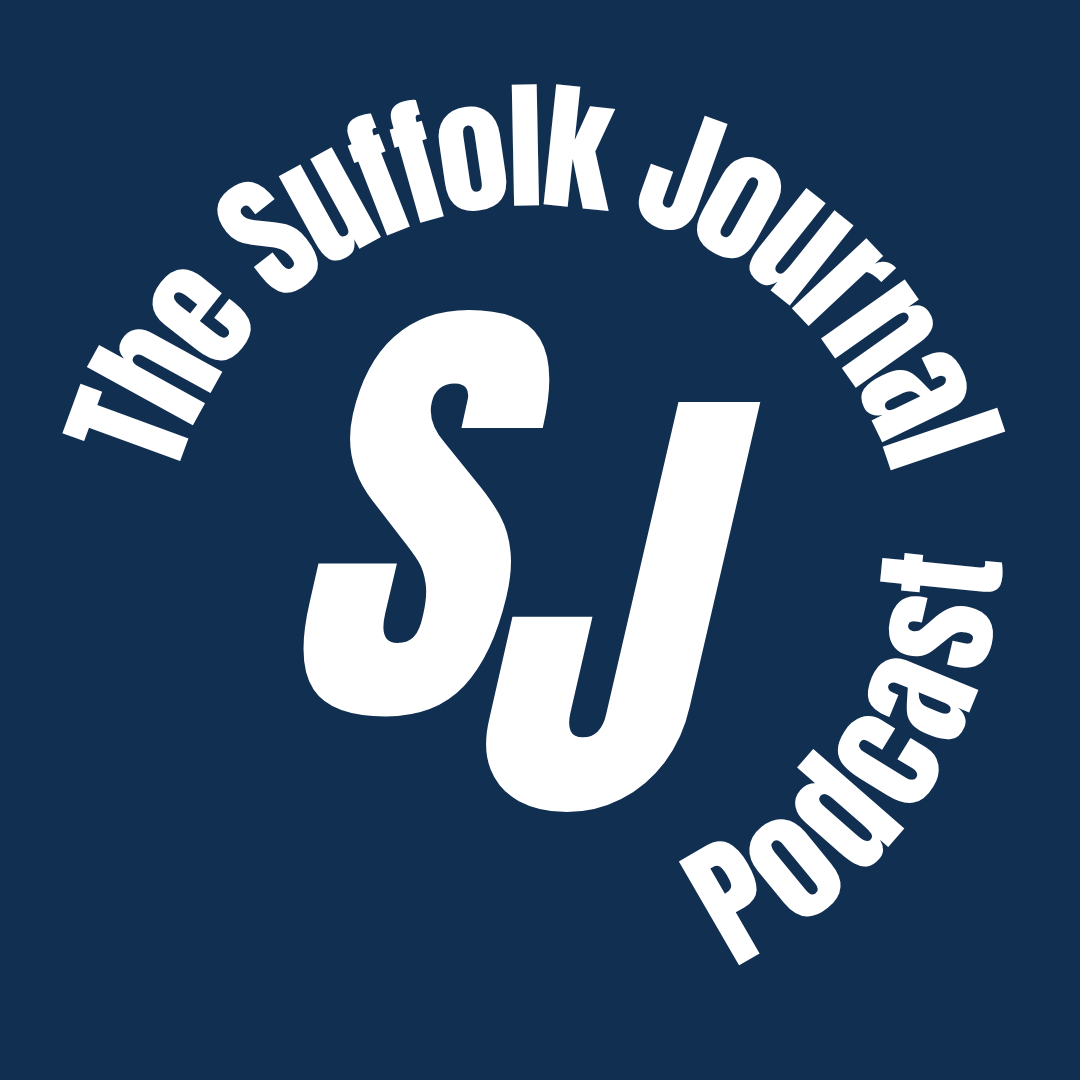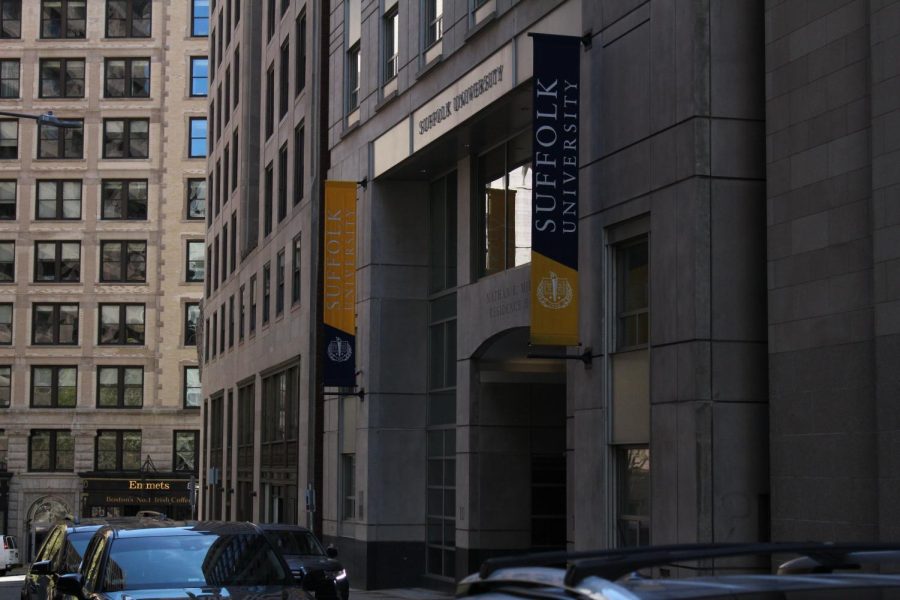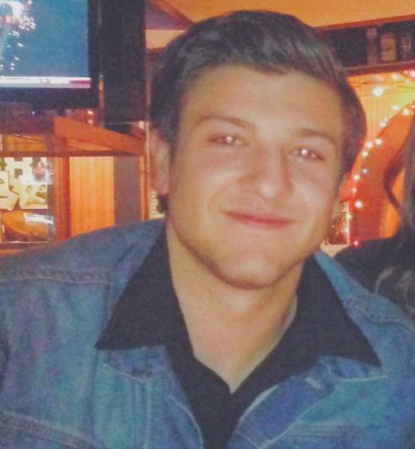
The United States Armed Forces’ reactionary occupation of Afghanistan has officially passed the 15-year mark. It began a week after the Sept. 11 terrorist attacks on the World Trade Center, President George W. Bush stood before a staggered nation and authorized a joint resolution authorizing the use of military force against those responsible for the attacks launched against the U.S. It materialized the following October, and the U.S. launched Operation Enduring Freedom that focused on Afghanistan, using airstrikes on Al-Qaeda and Taliban targets, with the assistance of more than one thousand U.S. forces. The conflict has led to U.S. troops being deployed throughout the Middle East, changing the trajectory of countless American lives. Since 2001, there have been more than 2.5 million American military members deployed to Afghanistan and Iraq, according to the Iraq and Afghanistan Veterans of America (IAVA).
To bolster the options for a statewide career path, many U.S. veterans have chosen to set their sights on a college degree once they return home. To alleviate some of the financial strain of a collegiate education, In 2008, U.S. congress passed the Post 9/11 G.I. Bill, which offers assistance to veterans who have served 90 days of aggregate active duty after Sept. 10 2001. Suffolk University has more than 120 students who are using the government benefits to fund their educations and the majority of these students are using the Post 9/11 G.I. Bill, according to Doug Peterson, Associate Registrar.
The university also takes part in the Yellow Ribbon G.I. Education Enhancement program, which they partnered with in 2009. This program, sponsored by the Department of Defense, offers veterans who enroll in the university up to $25,000 dollars annually. There are currently 79 Suffolk student-veterans who are the beneficiaries of this program, according to Peterson.
Another financial service offered to veterans who choose to attend college is the Vocational Rehabilitation and Employment Program. It assists veterans that have service related disabilities by footing the bill for college tuition. The program also provides advisory services that will help student-veterans gain access to job opportunities. More than 30 Suffolk students are receiving assistance from this program, according to Peterson.
There are numerous benefits and programs that are offered to these returning members of the Armed Services, but they must be sought out by the individual. This has been problematic and led to a litany of unclaimed benefits that go unused.
Anthony Davis, a Suffolk graduate student (JD/MPA ‘17) and former Marine, has set out to assist veterans nationwide by helping them to receive the support they need and the benefits that they are entitled to. On Thursday, he will launch the nonprofit organization Argos Remembers at Suffolk University. This unveiling will take place on the fifth floor of Sargent Hall, in conjunction with a discussion by Lt. Gen. Thomas Spoehr’s, titled “What America Owes Veterans, and What Veterans Owe America.”
“I realized a lot of those that are suffering from a mental illnesses have extreme difficulties with facilitating a relationship with a social worker and they are unable to access benefits because of the complexity of the process,” said Davis. “The system itself is set up, not to fail, but to be complex enough to deter fraud and abuse.”
The organization intends to aid veterans, who are homeless or at-risk, to receive the benefits that they have not been able to collect due to a variety complications they experience with the process. By assigning volunteer “battle buddies” to help them through the process, Argos Remembers hopes to make an impact on the lives of these veterans by helping them collect what they need.
“There’s so many different agencies, state and federal,” said John McCarthy, assistant director of Argos Remembers. “They’ll give benefits to homeless veterans, but you really have to seek it out. It is wonderful they’re out there, it’s just difficult to secure them.”
McCarthy is a student at Suffolk University as well. He is enrolled in graduate school, striving to earn dual Masters Degrees of Science and Mental Health and Public Administration. His goal is to eventually be a counselor for veterans. He found out about Argos Remembers while in class with Anthony Davis.
“The perspective that a veteran can bring into the classroom is very beneficial,” said McCarthy. “The discipline and structure that they have helps them lead by example for other students.”
From the end of October until the day before Veteran’s day, Suffolk will be rolling out a series of veterans-affiliated events that will begin with the Argos Remembers Breakfast until the unveiling of the new Student Veterans Office and Lounge on the ninth floor of Sawyer on Nov. 10.
“We had committed, as an institution, to provide a space for student-veterans and student-veterans organizations to get them an office and lounge space,” said John Silveria, Assistant Dean of Students in an interview late Tuesday night. “After all the moving on campus that has gone on over the last few months and the development of the classrooms in 73 Tremont we were able to find space in Sawyer. It will be available to them like any other club’s space.”
This victory for student-veterans has come a year after the undergraduate chapter of the Student Veteran Association was reformed after being dormant for years. They were faced with a call to rally shortly after their formation when the decision was made to remove a large American flag from the atrium of Sargent Hall. After Student Veteran Associations, that were undergraduate, graduate, and from the law school, advocated to return the flag back to the atrium, the university listened. It was hung back up on Veterans Day, and a celebration was held afterwards.
“Our student veteran associations were integral in having the flag reinstalled in the Sargent Atrium last year,” said Silveria. “There was a celebration on Veterans Day last year to recognize the fact that the flag was back up and to recognize veterans on campus.”
To veterans on campus, this is when they begun to have a more powerful voice on campus.
“They wanted to take down the American flag over Sargent Hall and we had to get that changed. Which we did.” said Marine Corps veteran Dwayne Smith, freshman accounting major and president of the Suffolk Student Veterans Organization. “We did not have a presence before that, and if you don’t have a presence, you can’t stick up for what you believe in.
Smith has currently been working on a project that will teach civilians how to interact with veterans. It will be on display during the weeks surrounding Veterans Day,
“I’m very excited about the Student Veterans Organizations display that they are putting on during the month of November in the Sawyer library and their focus on how to engage with veterans in conversation about their service,” said program adviser of the Student Veterans Organization Alex Paterson in an interview late Tuesday night.
While tackling the collegiate course load, these student-veterans must begin cultivating independent lives in the country that they served to protect. This obstacle has proven to be daunting for many student-veterans. For many of these men, and women, returning home means restarting a life that has become more foreign to them.
“I remember getting on the bus to leave, which was on of the greatest feelings ever,” said Ryan Emma, a broadcast journalism major who served in the Marine Corps and was deployed to Afghanistan, Eastern Europe and Morocco. “But when I was driving home from where I landed, I remember looking out the window at barbershops and car dealership and thinking nothing’s changed. They’ve been doing the same thing. I’m on the other side of this beast.”
The period of transition takes extensive time to acclimate to for some veterans, especially those who face complications such as post-traumatic stress disorder, traumatic brain injury (TBI) and other complications that are often tied to military deployment. These diagnoses are ones relatively common to active-duty members of the U.S. armed forces. According to the U.S. Department of Veterans Affairs, between 11 to 20 percent of veterans who served in U.S. operations Iraqi Freedom and Enduring Freedom have PTSD in a given year. For these veterans, the notion that they always come home with mental instability is a perception that has been hard to evade. This has exacerbated the social disconnect that some feel when reintegrating back home.
“A lot of Veterans are going through some things, but not every veteran,” said Brian Smith, a senior psychology major who was deployed once to Iraq and twice to Afghanistan before returning to the United States in 2013. “When you ask a veteran if they’ve deployed or not, and they say they’ve deployed to Iraq or Afghanistan, there shouldn’t be a correlation that person automatically has PTSD, or depression. It seems to me like people think veterans are broken. We’re not broken and we’re not weak.”
Even if the mental faculties of veterans who return home are akin to the day they deployed, more problems are still prevalent in life after military service. Getting used to a different routine, filled with new relationships, is something that has been especially difficult for those returning. The intimate camaraderie that a veteran had with their overseas peers is something that must then be recreated organically, from scratch.
“The difficulties for me were just transitioning to a city that I really did not know anything about. I really didn’t know anyone. I wouldn’t say I really got into beer and drinking, but it was definitely a way to cope,” said Smith. “There really was not a nice transition for me to come back and reintegrate, I just kind of got thrown back in. I was separated, walking around in Boston, having no idea where I was, or what I was doing, with no plan. I was drinking a lot.”
On Nov. 11 the U.S. will observe Veterans Day. In Boston, there will be two parades to honor the service of veterans. A harbor cruise will also take place, ending in the Fort Warren, to celebrate Boston’s military history.



















